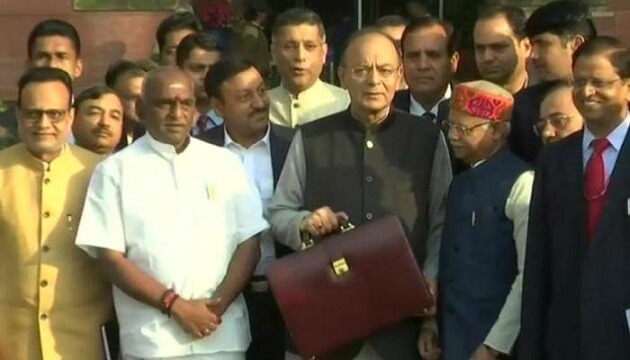Amid tremendous speculation and a subdued growth rate, India’s Finance Minister Arun Jaitley announced the fifth and final full Budget of the current NDA government. The 2018 Budget was significant because it was the first budget after the current government’s radical demonetisation and GST reforms. Keeping in terms with the budgets of the past, this year’s budget was populist with the agriculture, food processing, health, education, and MSME sector getting special attention. However, keeping in mind the advancements made in the field of technology, Arun Jaitley did announce a few important reforms for India’s electronics, electrical, and technology sector.
Following are some key highlights:
- The government sees the massive potential in solar energy and its implications on the environment. So, the government will direct electricity distribution companies to sell electricity produced from solar energy at reasonable prices to consumers.
- Under the Pradhan Mantri Saubhagya Yojana, 4 crore rural households in India will be electrified for free. The government has proposed allocating of Rs 16,000 crore to achieve this target.
- The 2018 budget highlighted the importance of technology in the education sector. Citing that it plays a crucial role in enhancing the quality of education in the country, the government will look forward to increasing the digital intensity across various schools in the country.
- Deekhsa is government’s digital portal to train teachers online so that they can impart better knowledge to their students. Apart from that, classrooms will shift from blackboards to digital boards.
- MSMEs were severely hampered following the introduction of GST. And aided by the calamities of demonetisation, many small and medium enterprises had to close shop. But, MSMEs form the core of India’s manufacturing prowess in the electronics sector. And in order to help them sustain and flourish, the government has allocated Rs 20,852 crore for the betterment of Indian MSMEs.
- The government will aid state governments in setting up state of the art R&D centres to increase the nation’s contribution in the developing field of Artificial Intelligence, Internet of Things, and 3D Printing.
- The NITI Aayog will set up a National program to see that the nation witnesses enough growth in these technological areas under the government’s Make in India and Digital India initiatives.
- The government will also set up centres of excellence across the country to aid the mission on cybersecurity.
- 5 lakh Wi-Fi hotspots will be created in rural areas of the country that will provide broadband-like internet speeds to around 5 crore rural households. BY this, the government aims at the digital inclusion of as many people as possible.
- Keeping the potential of 5G telephony in mind, the Department of Telecommunication will support in establishing indigenous 5G testbeds across the country. This move will make sure that when 5G becomes mainstream, India doesn’t have to depend on importing the infrastructure to aid the technology.
- Keeping the stance on cryptocurrencies the same as before, Arun Jaitley announced that they will continue to be illegal tenders and that transactions made using the same would be deemed illegitimate. However, it needs to be remembered that the government has expressed no objections to investing in cryptocurrencies.
- To achieve the dream of a digital economy in India, Arun Jaitley announced that the government shall look into the usefulness of blockchains instead.
- And perhaps the biggest relief for MSMEs in this budget is that the FM proposed to bring down the corporate tax from 30% to 25% for companies with a turnover of upto Rs 250 crore.









